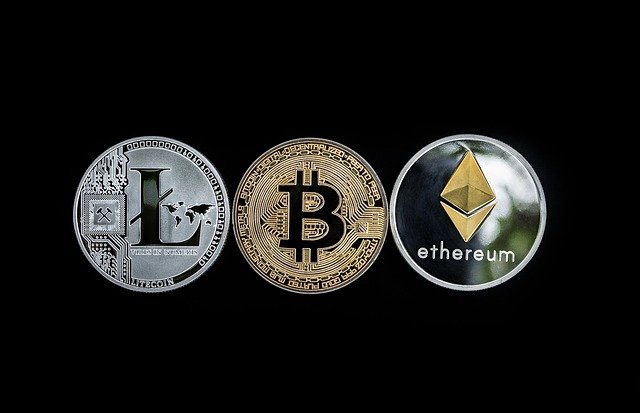In the past few years, we have seen many tweets about cryptocurrencies coming in from all corners of the world. According to research by The Block, the total number of tweets that mentioned “Bitcoin” increased by 43% within a week, from 242,180 tweets as reported on December 13th, 2020, to 428,280 as on December 20th, 2020.
This explains the huge popularity of cryptocurrencies today, especially Bitcoin and Ethereum. It demands serious consideration whether cryptocurrency can become the future and even replace real money in the upcoming years!
Table of Contents
Is Cryptocurrency a Good Form of Money?
A cryptocurrency is a digital form of money that can buy or sell goods and services across various platforms. There are thousands of digital currencies and assets in the trading world these days and many more are being added every month. Multi-exchange crypto trading platforms support a large number of crypto assets and allow users to buy goods and services with their crypto earnings. Crypto transactions are highly secured by cryptography, thus making it impossible for hackers and fraudsters to counterfeit money or make double-spends.
Many cryptocurrencies, like Bitcoin and Ethereum, are decentralized, thus eliminating any control by an authority or third party. They work on distributed ledgers that are enforced by a network of computers. Since many of them are not controlled or operated by any central authority, they are immune to governmental manipulation and interference.
Let’s weigh the value of cryptocurrencies with traditional money forms. Gold is considered a valuable asset as it has specific physical attributes. Although widely accepted, it has limitations like complicated valuations, volatile rates, and storage issues.
Fiat money or paper money is the most widely accepted and official currency globally and improves the gold money forms. However, governments need to print and manufacture fiat money in huge quantities and store them in highly secured vaults.
Cryptocurrencies, especially Bitcoin and Ethereum (the other types of cryptocurrencies are yet not strong or secure enough to be considered a future), do not require any physical storage places. They simply need to be stored on secure public ledgers in the form of blockchain technologies.
Since crypto is more mobile and flexible than any other form of money, it has enormous potential for future generations. Cryptocurrencies don’t just have a high valuation; they come with a lesser number of challenges, too, compared to fiat money or gold. Although crypto is not entirely immune to theft, they are much safer and more mobile than the traditional forms of money.
The Challenges Associated with Crypto
The biggest challenge associated with cryptocurrencies is their vulnerability to hackers, malware, and technical glitches. If fraudsters manage to hack any crypto exchange, they can steal, hack, and modify the data of thousands of digital wallets and accounts.
Apart from encryption security, some of the other issues and challenges faced by crypto miners include –
- Miner consolidation
- Income volatility for the miner
- High energy consumption (yes, crypto mining is not so eco-friendly!)
To ensure a secure crypto transaction environment, try using a reliable and secure crypto payment processor like Coingate. Here you can buy, sell, accept, and manage cryptocurrencies with the highest flexibility and safety while using advanced and intelligent trading tools.
How to Make Cryptocurrencies Greener?
To encourage businesses and nations to start adopting crypto transactions, we should make them more eco-friendly. To achieve that, we must reduce the usage of high-powered computers to verify crypto transactions.
Besides, crypto uses vast amounts of non-renewable resources like electricity, coal, and fossil fuels during the mining processes for running complex algorithms. We should look for more eco-friendly options by using renewable energy sources instead.
Environmentalists and business magnates like Elon Musk agree that Bitcoin mining uses large amounts of fossil fuels and coal to generate energy, which is alarming. The good news is a lot of cryptocurrencies have started using more eco-friendly mining methods, and they include –
- Chia
- IOTA
- Cardano
- Nano
- Solarcoin
- Bitgreen
Let’s look ahead for a greener mining process to help your next generations live better and healthier lives.
The Future of Cryptocurrency
Given that cryptocurrency is volatile, the future is yet to be explored well. Crypto is volatile in terms of prices and from the perspective of consumers and investors.
Even though there has been a massive surge in the adoption rates of crypto in recent years, the future of this digital form of money is still unclear. But there’s no doubt that the future of crypto is bright, and it has the potential to change lives by improving the global economy!
However, on the other side of the coin, El Salvador became the first and only nation to adopt Bitcoin as a legal tender, allowing businesses to start accepting payments through Bitcoins. President Nayib Bukele aims to establish a tax-free Bitcoin City soon on the coast of Salvador, thus making it easier for investors to start Bitcoin mining.
More and more nations should take such a bold decision to adopt cryptocurrencies to improve the world economy better. But before such a mass adoption, governments should take active measures to manage and mitigate the risks associated with crypto before making a huge leap!
Besides, nations also need to focus on making crypto transactions greener by adopting more eco-friendly mining techniques. If nations successfully manage these challenges and issues, we can expect a world beaming with possibilities! Because cryptocurrency is not the future, it is the present!


